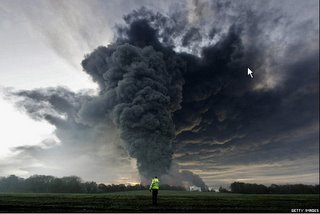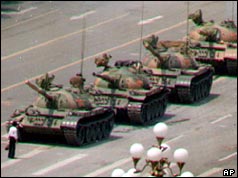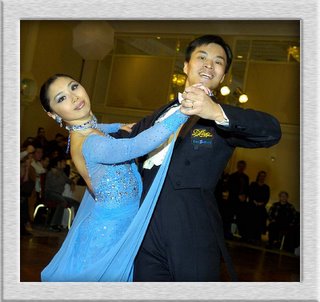
I no long maintain this blog - all my posts about Bushcraft, Outdoors, Nature, and Camping can be found now at MungoSaysBah.com!
Saturday, December 31, 2005
Thursday, December 29, 2005
Camping Gear Christmas
Today I drove on up there and finally got what I've been wanting for ages:
1. Buck Vanguard Rosewood grip drop point knife. This fixed-blade delight will supplement my folding Laguiolle Rosewood grip pocket knife during camping. Balance is awesome, perfectly fits in my ex-butcher hands, and holds a very sharp edge. Bears beware.

2. Coleman single-mantle naptha fueled lantern. I already have a Dragonfly MSR stove which runs loudly and hotly on naptha and I figured I could benefit from economy of scale (in weight and packing) from a lantern which also runs on this cheap and useful fuel (great for starting fires when it is pouring rain or on damp wood). Plus non-recyclable propane containers are heavy, bulky, and can't be used to start a good fire in the rain or on damp wood, etc... it will run on unleaded gasoline too, but in Canada since they put in additives this will clog up the device... but useful if in any other country.

3. External frame backpack. I went for the smallest one, because of the price point, but also because the guy at the store said that this one would be fine for me for up to a week long trip. I tried it on, and it is fine... I can strap on my tent, sleeping bag, mattress, etc... to the frame and fill up my pack with enough to keep me going - . But you know, the more I look at it, the more I think I want something with more capacity.. this is only 2050 cubic inches, I want 5000 cubic inches. I think I might go back tomorrow and exchange it.

Wednesday, December 28, 2005
Today's post hoc checklist:

- Heat up Turkey soup that I made recently, add extra water to it because it smells pretty strong, toast 2 pieces of bread and spread heart-friendly Becel margarine across them. - DONE
- Walk Monty. - DONE
- Eat my breakfast (see above). - DONE
- Apply for jobs online. - DONE
- Field a phone call from Barbara a job agent and respond appropriately to her questions above the position that is in place for the director position, stumble a bit about my .NET experience and tell her I have very little .NET experience. - DONE
- Read blogs. - DONE
- Walk Monty. - DONE
- Begin cleaning house - dust, vacuum, do dishes, wash shower floor with 'CLR', rinse hands of stinging burning 'CLR' cleanser, block up toilet with paper towels. - DONE
- Plow through stacks of paper and documents on desk, dispose of useless pamphlets, separate Monty documents from financial documents from employment documents from condominium documents from foster child documents. - DONE
- Peruse my new camping and hiking wilderness skills book that Spring got me for Christmas and stare helplessly and longingly at images of various kinds of camp fires and imagine cooking over said fires. - DONE
- Phone Spring. - DONE
- Phone Spring again. - DONE
- Pick Spring and her mum up from Eaton Centre. - DONE
- Observe Boxing Day shooting scene. - DONE
- Observe cop cars parked nearby. - DONE
- Stop at Loblaws and shop for food. - DONE
- Get home. - DONE
- Walk Monty. - DONE
- Eat a little. - DONE
- Chat. - DONE
- Drink a beer. - DONE
- Watch TV. - DONE
- Read news online. - DONE
- Watch TV. - DONE
- Walk Monty. - DONE
- Apply for jobs online. - DONE
- Put Monty to bed, Spring is already in bed. - DONE
- Compose and post blog entry. - DONE
- Go to sleep - NOT YET
Sunday, December 25, 2005
Saturday, December 24, 2005
Friday, December 23, 2005
On my messy desk.
Before me I survey my messy desk. I should clean it up.
But first - before I clean it - an audit of stuff on it:
1. 402 page book that I read this week by William H. McRaven "Spec Ops - Case Studies is Special Operations Warfare: Theory and Practice". I especially enjoyed the Entebbe raid story. He presents 9 separate special operations missions and provides an analysis based on a series 6 principles under the flagstaff concept of 'Relative Superiority'.
'Simply stated, relative superiority is a condition that exists when an atacking force, generally smaller, gains a decisive advantage over a large or well-defended one.'
Carl von Clausewitz, in 'On War' wrote that the
'defensive form of warfare is intrinsically stronger than the offense. It contribues resisting power, the ability to preserve and protect oneself. Thus, the defense generally has a negative aim, that of resisting the enemy's will... if we are to mount an offensive to impose our will, we must develop enough force to overcome the inherent superiority of the enemy's defense.'
Von Clausewitz is basically saying to win against an entrenched enemy, an attacking force of superior numbers has to be mustered (not mustard, as this is a tasty condiment not suited for offensive missions).
And in view of special operations theorists these days, that's not always possible, and so the concept of relative superiority comes into play. Or so writes McRaven (what a strange name).

The graph here described how, over time during a mission, there is a crucial threshold of relative superiority that is surpassed, and from then on it is equally crucial to maintain the position of relative superiority, be it by stealth, surprise, positioning or calm efficacy, in order to win the battle.
Well that's all I want to say about this book right now, it's fun comparing this to Sun Tzu's 'The Art of War' as I've just read that over again recently.
2. A mug covered in pictures of log cabins, canoes, fish, fishing rods, a moose and a bear.
3. A stack of Turkish DVDs that need copying.
4. An IKEA tin container filled with pencils, pens and more...
5. Wallet sized pictures of Spring and I and of Monty, printed from a colour printer at Spring's work.
6. The loose ends of Christmas wrapping paper.
7. The January-February 2006 issue of American Scientist, the magazine of Sigma Xi, the Scientific Research Society. Not to be confused with Scientific American, or with Modern Brewery Age, the professional's source for the beer brewing industry.
8. Some of my old business cards.
9. A pair of tweezers.
10. A half-filled container of One Step Hand Sanitizer.
11. A flashing wireless router.
12. A small piece of birch bark that I got from a tree deep in Algonquin Park.
13. A torn napkin.
14. A remote control.
Thursday, December 22, 2005
Wednesday, December 21, 2005
Dr. Sidney Freedman
Chandeliers.
Went to interview.
Well, that's it, I'm back.
I went to the interview at the ornate building.
They had huge chandeliers hanging from the ceiling trusses.
Old oak furniture and Japanese silk painting and carvings all around.
They deploy teams to clients and provide consulting services and that's what I know.
He said I scored very well on the test and seemed pleased and curious.
He wrote copious notes as the interview proceeded.
It lasted 30 minutes which is short.
He had another meeting.
I left then.
Good sense.
Sleepy.

Tuesday, December 20, 2005
Bye Bye Beardie
So I am going to remove my 47 pound beard later today - I want to be 'Well Presented'as per their hiring criteria.
Say Bye Bye Beardie...

Good Morning! 7:30 or 8:00 am interview?
A few minutes ago a guy from the consulting company and said that they'd received my test results and that I'd "passed with flying colours". The VP of such and such is in his office from 6:30 to 9:00 tomorrow morning and "could I come in for an interview around 7:30 or 8:00?"...
So, I will awaken from my slightly stupider than I thought I was according to the IQ test slumber and go to meet him.
Apparently this company is
"not a place for everyone. We're intensely focused on those we serve and obsessive in terms of the detail and the discipline required of superb performance. One-in-three survive our "trial-by-ordeal, up-or-out" policy in their first year. One out of every 100 applicants is offered a position with us."
Oh yeah. This is going to be a walk in the park if I pass this first in-person interview.
Why is this beginning to feel like The Firm?
If I find out that this is one huge scam - and that they want me to pay them $5,000 for the opportunity for career direction and advice - please don't laugh at me. There is a sucker born every minute.
Monday, December 19, 2005
Ahmadinejad & Kenny G.
Mahmoud Ahmadinejad - Iran's new leader - has banned Western music from the radio. The Ayatollah Khomeini did this a few years back also. He was a cute little fella too.
But the only acceptable thing about it all is that Associated Press and Aljazeera both mention that Kenny G. will no longer be played on Iranian radio. Maybe Kenny G. has been what's been bugging our little Ahmadinejad all along. Maybe he'll relax a little now and stop beating the drums of war.
Just a thought.
Test Anxiety, Prostaglandins and Intelligence.
They called me today and we had a brief chat and they said next steps are that I have to write an IQ test - a psychometric examination. I wrote one of these for one of the last companies I worked for - I always try to write them as fast as I can - used to do these with exams at university - generally being the first one to leave the class room. That probably wasn't wise. In my 4th year I wrote a thesis paper on predictors of performance in university. Here's the abstract of my paper:
"Traditional predictors of performance in university are high school grade point average, and Scholastic Aptitude Test scores. The validity of traditional (high school grade point average, Scholastic Achievement Test scores) and non-traditional (personality and cognitive) variables combine to make more effective predictors. Several non-traditional variables are examined via multiple regression to determine their predictive value for a mid-term examination score in an introductory psychology course at the University of Toronto. A factor analysis of the predictive model is presented. 20% of the variance of academic performance is explained by scores achieved on the Short Raven Advanced Progressive Matrices Test, the Mill Hill Verbal vocabulary test, and the Test Anxiety Inventory Worry subcomponent. This study demonstrates that non-traditional predictors, including both cognitive and personality variables, can better predict academic performance than the traditional predictors."
So, one of the main points of this 42 page paper was that verbal ability and test anxiety measures better predicted success - and therefore completion of the final years of university - than did SAT and high school GPA. To wit:
"In recent years, many researchers have focused on identifying reliable predictors of academic success for university students (Larose & Roy, 1991). The ‘dropout’ rate for university students after first year is considerable, such that it would be cost-effective for the universities to reliably determine in advance whether a student is a good candidate for achieving at a minimal satisfactory level at university. Systematic investigation and validation of predictor variables related to academic performance at universities would be most effective in predicting academic performance."
I note that one of the appendices has a table describing the Exploratory Factor Analysis of Predictor Variables (Group A), displaying the VARIMAX Rotated Factor Matrix of several psychometric tests. I don't have a clue what this means anymore - it has been a long, long time since my brain worked so happyquickfast.
Note that a hint about me having substantial test anxiety is buried in my little story about leaving the exam room quickly.
But I digress...
Anyway, here's what the company is looking for in candidates, according to their HR web site:
- Top 5% IQ
- Must qualify for Top Secret security clearance
- Must reside within company's principle trade area of assignment, e.g. GTA
- Well-presented
- Now - with regard to the first one. I am more than 5% intelligent. That was easy. Phew.
- I actually have Canadian Security Clearance - but not Top Secret - I got it for a position some time ago, and it is good until 2014. Having Top Secret, well, that'd be just Plain Cool. I'd get to find out what really happened at Roswell. And I'd get to wear dark sunglasses like Men in Black.
- I live in the GTA. That was easy. Phew.
 Well-presented. Well, I did a Google Image search and found this old picture of me - I'm wearing a well-presented suit, dancing at a New Year's party from some time ago. Note the swish hair. As I hazily recall, I was doing the sandwich dance - where I mimic the elaborate gesticulations and hip-shaking moves behind the contruction of a typical tuna melt sandwich.
Well-presented. Well, I did a Google Image search and found this old picture of me - I'm wearing a well-presented suit, dancing at a New Year's party from some time ago. Note the swish hair. As I hazily recall, I was doing the sandwich dance - where I mimic the elaborate gesticulations and hip-shaking moves behind the contruction of a typical tuna melt sandwich.
I write the IQ test tomorrow.
My professor in my 4th year Human Intelligence course started off his first course lecture with this nimble warning. "You will" - he said wagging his finger - "leave this course realizing that there is nothing in our heads or in our world that you will be able to call I.Q. You will grow disillusioned with the concept of I.Q."
Before the final exam I bumped into him in the coffee line and told him I was terrified - that the more I studied, the less I seemed to know. He said I was becoming wise. He said that we really know very little. He told me that they still don't know how aspirin works. I muttered something about prostaglandins but that didn't impress him and he quickly moved on to something else. I think he was right, though, in the end. I left the course (did well on the exam by the way) realizing I.Q. wasn't anything other than how it was measured, I guess.
I'll write the test tomorrow - and court anxiety and the ineffable not-knowing of my career future.
Synthetic Life Form
I would like them to create a life form that earns a more than decent pay cheque, frequently goes to the beer store for me, does the laundry, does the dishes and frequently arranges nice vacations for us. And it must be toilet trained. And be no more than the size of an average bread box.
I would also like it to have a habit of making really delicious brownies. I like brownies.

Thursday, December 15, 2005
Put stuff or dance.
Quick - do this:
- Put a 12 pound turkey, a box of Paxo stuffing, an orange into your shopping cart and pay the nice lady.
- Put together on your kitchen counter pepper, salt (coarse, non-iodized), 1/2 cup of cold butter, sliced into flat squares, some olive oil or canola oil.
- Put your stove on maximum, and put some water into a pot. Boil it and take it off the head, and dump in the Paxo.
- Put the orange under a knife and slice it up into chunks, discarding the peel.
- Put this into the stuffing.
- Put the stuffing into the body cavity of the Turkey.
- Put the butter slices under the breast skin.
- Put coarse salt and pepper and olive oil all over the body.
- Put your oven on to 325 degrees fahrenheit - wait until it is pre-heated.
- Put a cup of water into a foil container and put this on the lowest oven rack.
- Put the turkey now onto the middle oven rack.
- Put the door into the closed position.
- Put yourself down on the sofa for 3 1/2 hours.
- Put the turkey on to the counter for 20 minutes.
- Put a knife to the turkey until the turkey is rendered into little bite-sized pieces.
Nah. Just kidding. Don't do any of that.
Just dance.
Tuesday, December 13, 2005
Shanwei Shootings article from Stratfor
The Shanwei Shootings and China's Situation
By George Friedman
Last week, a group of Chinese villagers staged a demonstration against a wind-power project near Shanwei, a town in Guangdong province about 100 miles from Hong Kong. In the first incident, protesters blocked access to the site of the wind-power generation project. The next day, Dec. 6, demonstrators returned. According to Chinese official reports, they were led by three men -- Huang Xijun, Lin Hanru and Huang Xirang -- and were armed with knives, steel spears, sticks, dynamite and Molotov cocktails. Members of the local People's Armed Police fired tear gas at the crowd, hoping to break things up, but the three leaders rallied the crowd to continue what, depending on who was telling the story, was either a protest or attack. According to the description of events given by the Chinese government, the demonstrators started to throw explosives at the police as night fell. The police opened fire. Official reports said that three people were killed, eight wounded.
The protests in Shanwei had gone on for quite a while before coming to a head last week. The land for the power project was confiscated a few years ago. The farmers who worked the land were never compensated for their dislocation. They formally petitioned for their money in 2004 but were ignored. Public demonstrations began in August 2005, continuing intermittently. With no compensation forthcoming, the protests escalated and then exploded, with last week's incident marking the first reported shootings of demonstrators in China by official security forces since Tiananmen Square in 1989.
The shooting is new. The pattern is not. There has been intensifying unrest in China over the past year -- frequently, as in this case, over issues that have been simmering for years. This has been particularly true for peasants who have seen their land confiscated by the government for industrial projects. Money is issued to local officials by state-owned enterprises and other investment groups to cover the cost of the land. That money passes through the regional and local bureaucracies. By the time it should reach the owners, there often is nothing left; it has been stolen by officials at various levels. No one denies the farmers' claims to the land, but no one acts to compensate them. The laborers go from being small farmers to being destitute.
This is a critical process at the heart of Chinese industrialization. The purchase of land, including forced sale, is considered necessary for Chinese economic development. However, Chinese economic development is driven as much by corruption as by land. The government in Beijing has no particular desire to see the farmers dispossessed; on the contrary, the money is made available for delivery to the farmers. But the diversion of funds is hard-wired into the process. It is one of the primary means for capital formation in China.
One of the paths to entrepreneurship in China is to become a government official who can use one's public office for personal savings and networking -- accumulating enough money and useful contacts to move into business later. With massive expropriations of land over the past decade designed to facilitate economic growth, the opportunities -- and compulsion -- to steal money intended for farmers is powerful. In order to hold onto his job, a government official must maintain a system of relationships with superiors, colleagues and subordinates. These relationships are based on money. If the official doesn't find the money to hold his place in the bureaucracy, he will lose it. Therefore, the diversion of funds is built into the system.
The Chinese government wants it both ways. On the one hand, it does not want unrest among farmers. On the other hand, the Communist Party elite in Beijing live by patronage. They have risen through the system because of the web of relationships that makes Chinese industrialization possible. They can, in very specific cases, take action against cases of corruption. However, a systematic attack on the causes of corruption is impossible, without a systematic attack on their own infrastructure.
This is particularly true in rapidly developing provinces like Guangdong. The interface between the new economy and the old has become a battlefield. The old economy was land-based: Mao created a peasant economy that was overlaid by attempts to industrialize. The new economy regards land as an input into the industrial machine. However, given the nature of the Chinese political system, the farmers are not simply bought out -- they are forced off the land. And that can lead to social explosions.
The recent events in Shanwei are unique only in that they resulted in gunfire and death, and because they were brought to light by the anti-Communist media. After these reports were picked up and widely circulated by the international media, the government in Beijing acknowledged what had occurred, adding details that appeared to show that the demonstrators forced the police into shooting. But later, the government announced that the head of the police unit involved had been arrested -- which seems to imply that the story as originally told by the Chinese wasn't altogether accurate. Why arrest the cop if explosives were being hurled at police?
The specifics of what happened, of course, have no geopolitical consequence. What is important is that tensions in China have been rising steadily. Thousands of demonstrations (74,000, according to figures released last year by the government) have taken place -- some reportedly violent, if not fatal. In one case earlier this year, residents protesting corruption related to land seizures took control of their town, forcing the police out. The Chinese government appeared to capitulate to the demonstrators, giving into their demands -- but weeks later, those who had participated in the rising were quietly arrested. In another incident, which also turned deadly, brute squads believed to have been hired by local officials and businesses attacked protesters. There are numerous other examples to draw from.
Beneath the surface, a number of things are taking place. The Chinese economy has been growing at a frantic pace. This is not necessarily because the economy is so healthy, nor because many of these industrial projects make economic sense. In fact, the government in Beijing has been very clear that the new projects frequently don't make a great deal of economic sense, and has been trying to curb them (though it does not necessarily command obedience in every case from provincial or local governments). On the other hand, China needs to run very hard to stay in place. Within what we will call the entrepreneurial bureaucracy -- with pyramiding, undercapitalized, highly leveraged projects being piled one on top of the other -- new investment projects are needed in order to generate cash that stabilizes older, failing projects. Slowing down and consolidating is not easy when there are bank loans coming due and when money has to be spread around in order to maintain one's position in the system.
That means that aggressive economic growth is needed. It also means that massive social dislocation -- including theft of land -- is embedded in the Chinese system. The flashpoint is the interface between the rapidly spreading industrial plants and the farmers who own the land. The bureaucratic entrepreneurs need not only the land, but also the money that legally is due to the farmers.
China is a mass of dispossessed farmers, urban workers forced into unemployment by the failure of state-owned enterprises, and party officials who are urgently working to cash in on their position. It is a country where the banking system has been saved from collapse by spinning off bad debts -- at least $600 billion worth, or nearly half the GDP of China -- into holding companies. This maneuver cleaned up the banks' books and allowed Western banks to purchase shares in them, shoring them up. But it also left a huge amount of debt that is owed internally to people who will never see the funds. Imagine the U.S. savings-and-loan scandal growing to a size that was nearly half of the national GDP. As it happened, in the United States the federal government swallowed a great deal of the S&L bad loans -- but in China, these bad loans would just about wipe out the country's currency reserves, assuming that the numbers provided by the government are valid.
Under such circumstances, it is no surprise that Chinese money is leaving the country, flowing into the safe havens of U.S. T-Bills or offshore mineral deposits. Moreover, it is not clear that China's economy is continuing to grow. China's imports of oil have topped out and, by some reports, have started to decline -- yet the Chinese are continuing to report unabated growth rates. How can the economy be growing rapidly while oil imports decline? The country lacks sufficient energy reserves to fuel such growth, nor can that level of growth be coming from service industries. At any rate, growth rates do not by themselves connote economic health. The rate of return on capital is the ultimate measure of economic success. Anyone prepared to lose money can generate rapid revenue growth. And anyone facing cash-flow crises due to debt burden knows how easy it is to slip into revenue-growth obsession. The Chinese certainly have.There is, therefore, a tremendous tension within China's new economy. The root problem is simple: Capital allocation has been driven by political and social considerations more than by economic ones. Who gets loans, and at what rates, frequently has been decided by the borrower's relation to the bureaucracy, not by the economic merits of the case. As a result, China, as a nation, has made terrible investments and is trying to make up for it with rapid growth. That is where things get difficult: As before with Japan and East Asia, the economy is thrown into a frenzy of growth in efforts to stabilize the system, but that growth throws off cash that cannot easily be capitalized and therefore is invested abroad. Meanwhile, bad debts -- stemming from continued investment into nonviable or unprofitable businesses, for social or political reasons -- surge, and the government tries to come up with ways to shuffle the debt around. In other words, the origin of the problem is simple -- but the evolution of the problem becomes dizzyingly complex.
This leads to stresses within the advanced economic sector. In China's case, these manifest as competition between different political factions for access to the funds needed to maintain their enterprises. But that is nothing compared to the tension between the new economy and farmers and the unemployed. As the system tries to stabilize itself, it seeks both to grow and to become more efficient. As it grows, the farmers are forced to give up their land. And as it seeks efficiency, industrial workers lose their jobs.
This is an explosive mix in any country, but particularly so in China, which has a tradition of revolution and unrest. The idea that the farmers will simply walk away from their land or that the unemployed will just head back to the countryside is simplistic. There are massive social movements in play that combine the two most powerful forces in China: workers and peasants. Mao did a lot of work with these two groups. Their interests are now converging. The decisions of the bureaucratic entrepreneurs are now causing serious pain, which is becoming evident in increasing social unrest. At Shanwei, that unrest broke into the open, complete with casualties.
The important thing to note is that both the quantity and intensity of these confrontations is increasing. While the Western media focus on the outer shell of China's economic growth -- the side that is visible in Western hotels throughout major cities -- the Chinese masses are experiencing simultaneously both the costs of industrialization and the costs of economic failure. The sum of this equation is unrest. The question is how far the unrest will go.
At the moment, there does not appear to be any national organization that speaks for the farmers or unemployed workers. The risings are local, driven by particular issues, and are not coordinated on any national scale. The one group that tried to create a national resistance, Falun Gong, has been marginalized by the Chinese government. China's security forces are capable, growing and effective. They have prevented the emergence of any nationalized opposition thus far.
At the same time, the growth and intensification of unrest is there for anyone to exploit. It won't go away, because the underlying economic processes cannot readily be brought under control. In China, as elsewhere, the leadership cadre of any mass movement has been made up of intellectuals. But between Tiananmen Square and jobs in Westernized industries, the Chinese intellectuals have been either cowed or hired. China is now working hard to keep these flashpoint issues local and to placate localities that reach the boiling point -- at least until later, when arrests can be made. That is what they are doing in Shanwei. The process is working. But as the economy continues to simultaneously grow and worsen, the social unrest will have to spread.
The discussion about China used to be about "hard" and "soft" landings -- terms that were confined to economics. The events in Shanwei raise the same question in another domain, the political. Police shooting down demonstrators is not an everyday event in China or anywhere else. But it has happened, and this event didn't just come from nowhere. The question of soft and hard landings now must be considered more literally than before.
And in China, hard landings over the past couple of centuries have been bloody affairs indeed.
Sunday, December 11, 2005
We have lift-off
How Domain Name Servers work and Toxic Waste Forbidden Zones
Here's how it works:
DNS (Domain Name Servers) tell computers how to find each other over the Internet. When you type an address in your browser, your ISP (Internet Service Provider) checks with its domain name server (DNS) to determine where to send you. I'm using Rogers as an ISP. Some folks use Look.ca and others use Bell Nexia.
You type in http://www.exampledomain.com ---> System checks with DNS ---> DNS says domain.com = 192.168.0.1 ---> This matches a setting in your host's domain name server file and then you are taken to the web site.
Basically, this is a way to simplify web site domains. I'd rather go to cars.com than go to http://184.54.345.0.1. It is easier to remember. And better for the marketing department.
My clients are bound to begin asking "Why does it take so long for my site to start working?"
I will tell them that since they changed web hosts, the new DNS information has to reach every other name server (DNS) on the Internet. That their site may appear to them in as few as 4 hours, but the average waiting time is 24-72 hours. This delay occurs because most name servers (DNS) choose to periodically check for updates. That is, they aren't "live." Periodic checking is done because constant checking often slows down the server.
Or I will use an analogy for them, but I don't expect they'll get it:
"When you throw a stone into a pond from a dock, the wave takes a while to propogate across the water to tell folks on the shore at various points that something has happened (the splash). The folks off on the left and the right of the dock will recieve the message more quickly. The folks at the far end of the pond will take longer to find out. These folks are like the Domain Name Servers. As each of them receive the message, the can begin to tell their visitors that a stone was dropped into the lake and that things are now different. "
And then I can turn this analogy into more of a metaphor against war, or even try to find a clever tie-in to how the materialism pollutes the Christmas spirit.
Speaking of pollution, Cherry beach and the surrounding docklands can't be used for human 'consumption' due to the enormous amount of pollution. Since the 1800's, this area was used for heavy industry. Now they can't even build pretty parks on it. Because someone would sit down and spend a nice summer day in the park and later that evening go home and sprout a tumour on their forehead. Monty and I see to enjoy the place. The nastiest places are fenced off with barbed wire and maybe even land mines and sentry guns.
Anyhow, once the DNS changes kick in for you and me, we'll both be seeing this:

Bath Time For Monty

Since he had his operation in the first week of October, Monty hadn't had a bath. At first it was because of the stitches, and then it was because he couldn't sustain standing up or sitting down for long on a slippery floor. Plus the risk of his falling and injuring his knee again.
But today he seemed up for it. As was I.
After his bath he started running about attacking his stuffed toys and trying to get us to play with him. I turned on the fireplace - yes, turned it on. Natural gas and a lightswitch.
Now he's snoozing in the sunlight, licking his paws, cleaning them off.
Hertfordshire Fuel Depot goes up in flames
 There is a satellite photograph of the Hertfordshire fuel depot explosion on the BBC news site.
There is a satellite photograph of the Hertfordshire fuel depot explosion on the BBC news site.My favourite little intelligence site reports:
Main fuel installations of this size are routinely equipped with systems for shutting down sections to curb the spread of fire or blasts. The magnitude of the explosions that engulfed the entire installation indicate an unusual catastrophe of some kind. Witnesses reported heavy rumbles before the explosion, much as though an aircraft had crashed into the oil installations.
On Dec. 7, an Islamic website ran an excerpt of an earlier videotape in which bin Laden’s No. 2, Ayman Zawahiri called on “holy warriors” to concentrate their attacks on oil targets.
Reuters reports:
"All indications at this stage are that this was an accident. However clearly we will keep an open mind," Hertfordshire Chief Constable Frank Whiteley told a news conference after Britons, still on edge from July bomb attacks in London, awoke to images of destruction from new blasts.
Yowee.
Saturday, December 10, 2005
Cherrry Beach
 This morning I drove Monty to Cherry beach.
This morning I drove Monty to Cherry beach.  We got there and pulled in to the parking lot - only a few cars were there, each transporting their canine load to the edge of the trees between the beach and the bay.
We got there and pulled in to the parking lot - only a few cars were there, each transporting their canine load to the edge of the trees between the beach and the bay.
Then Monty snuffled about and said hi to some other dogs and I looked at the ice and the snow and the trees and smiled and then after a while we returned to the car. I then drove along a road beside a thermal generating plant and took some photos - here's a smoke stack.
Then I boiled up the carcass of a roasted turkey and made soup. Then I changed the DNS name server record to make a site live. Then I went to see if the bastards have paid me. I invoiced them Oct 31. It is Dec 10. Bastard swine. They didn't. Thought they said they would. Said it several times over the last few weeks. "Cheque's in the mail. Cheque's gotta be signed. Cheque's been couriered. Cheque will be couriered. Cheque's been dropped off at concierge. Cheque will be dropped off at concierge." Bastards.Often I wonder why I bother doing freelance. Then I think I should charge twice what I do, so that the grief I go through will be worth it.
Thursday, December 8, 2005
Tiananmen Square etc...
 I went to university with a guy who hung out and demonstrated in Tiananmen Square. He'd gone there to get a student visa to come to Canada, and thought it seemed kind of exciting so he hung out for a day and a night. He left Beijing the next day to go to Canada.
I went to university with a guy who hung out and demonstrated in Tiananmen Square. He'd gone there to get a student visa to come to Canada, and thought it seemed kind of exciting so he hung out for a day and a night. He left Beijing the next day to go to Canada.2 days later the tanks and the troops rolled in and made dead people and put them all about the ground. Then they put the dead people away so the live people wouldn't be able to say 'hey look at all the dead people - this is wrong'. Some dead people weren't taken away. Then they starting taking some of the live people away who said making dead people was wrong, and indeed saying that they'd - the troops - taken away the dead people and that that was wrong.
I found him in the woods once deep in the valley surrounding the campus. It was night time and I'd gone for a walk after leaving a party in one of the residences. I heard sobbing and walked through a swampy area and found him leaning on a tree trunk with a bottle of Remy-Martin cognac. He said he was sad and had drunk most of a bottle of cognac. So I told him we'd go back and drink more cognac and beer and make beef and rice. And we did and it was funny because he was 6'4", and scary looking like a Van Damme movie character and came from a very rich family and maybe that's why he listened only to opera and drank Remy-Martin cognac. His plan was to go back to China and take over his dad's company and get married to his high-school sweetheart. I hope he did.
Later that same night a Korean guy who lived next door who's name I've forgotten got stuck in the tree outside the house because he was hopelessly drunk and because he'd never really drunk much before and was really in love with Wendy (I think was her name) the girl who lived next door to us who he thought didn't know this but she did and thought he was nice - which he was. Wendy had to be awoken during the middle of the drunken night to convince him to leave the tree. Which he did. They later became friends.
So when I read an article about the tanks and the troops again, it kinda brings me back and I feel sad.
Stupid tanks and troops.
Learn more here.
Wednesday, December 7, 2005
Wow! Again!


Tuesday, December 6, 2005
University Interview
I had an interview at a local university for a web services manager position today. 2 interviewers plus an HR representative who wasn't all that personable interviewed me. I'd worked with one of the interviewers at CBC a couple of years ago - I think she liked me then. I didn't like CBC then.
If I get the job, I'll be in the heart of the city acting as ambassador to the user-stakeholders of a project that I'll be driving to have put in place.
If I don't get the job, I'll get another job. I'm working on a couple of freelance jobs now.
Now go - go to sleep my friends.
Blackberry Service Ending (maybe)

Wondering why I'm posting this fascinating piece?
'Cuz I'm hoping my blog will get featured on WashingtonPost.com - along with a bunch of others.
Monday, December 5, 2005
New Scary Creature Thing
I want one for Christmas.

Apocalypse Now

I spent about 30 minutes just now marking up a transcript of Apocalypse Now - for 3 reasons.
- I just installed sIFR on my server.
- I thought you'd enjoy reading it because it is great and it is embellished with sIFR effects which are amazingly awesomely cooley neat.
- To see what viewer response would be to me posting, perhaps, the transcript of Withnail and I. Vote with your comments please: e.g. "I want the finest wines known to humanity and I want them here and I want them now."

Thank you,
'Best Regards',
I hate it when people use 'Best Regards',
But then I use 'All the Best', and I'm sure people hate that too.
But I am quite certain that people who sign off with just 'Best' suck the most.
And who the hell uses 'Thx'? Are they in tertiary stage syphilis, unable to coordinate their limbs? (pardon to all those readers with tertiary stage syphilis. At least you smile all the time, lost in your dementia. )
Eat a Peach (search for it),
Mungo
Thursday, December 1, 2005
Act Firmly
That is, torture and execute all the men in a village.
I remember thinking "What the fuck?". And dismissed it. "I must have read it wrong. What ex attorney general would say something like that?" And moved on to another article.
And then I've come back to it again, thanks to this refreshing article in Slate. What kind of a jerk is this guy - as the article says - at least Clark is saying Saddam is guilty, despite saying he is guilty for some acceptable reason. Maybe it's an elaborate plan of the Americans and the neoconservative cabal - "we'll send an anonymous letter to Clark telling him he should defend Saddam, like he defended Milosevic and the Rwandan genocideurs... that'll cook his goose".
That's all I have to say. I'm disgusted with powerful people who use their power for evil. No matter what stripes they wear, what flag they wave, what innocence they profess.
I read something recently about men who mistake the plunder of evil for the pleasure from goodness. Which is how they can do evil, thinking the goodness they get is from good they're doing. Read that again - it makes sense.








